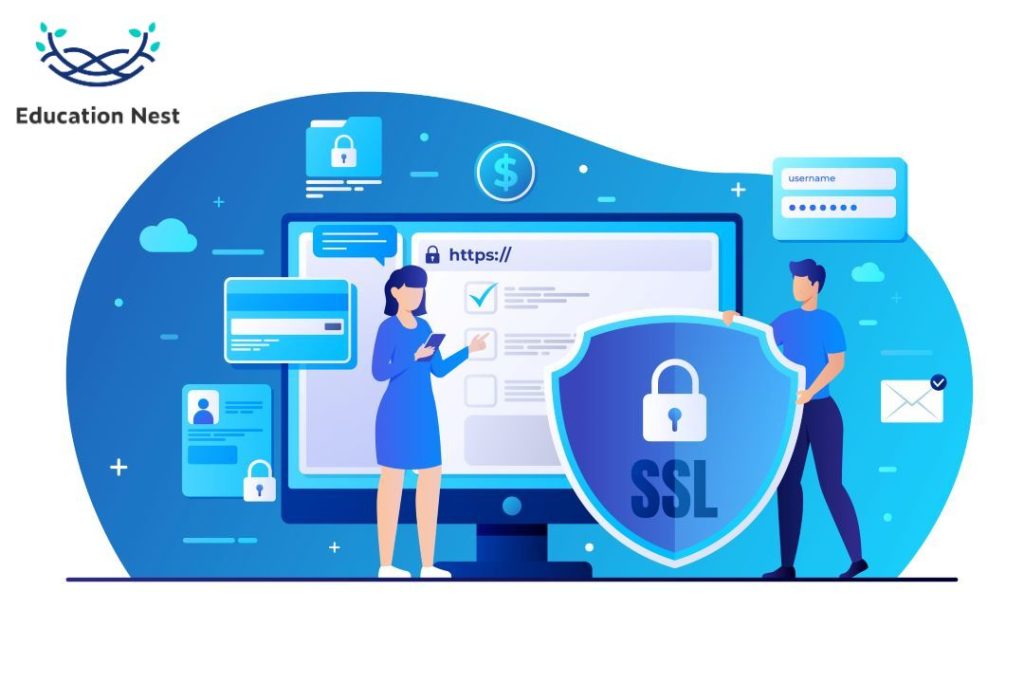
In today’s globally interconnected world, students spend more time than ever researching and completing assignments online. The digital world is instant and everywhere, 24 hours a day, 7 days a week. For this reason, it’s crucial to understand basic cyber safety measures.
Understanding how to use the Internet safely, how to deal with issues if they arise, and the consequences of your actions are essential if you want to have a positive and secure experience online. Education about cyber safety for students should be mandatory because the things that they do online can have a significant effect on their psychological and social development.
What is cyber safety, why is it important, and how can we as individuals make it effective not only for ourselves but also for students? These are some of the questions this guide seeks to answer.
What are cyber safety and cyber security?
The importance of technology in modern society cannot be overstated. There’s nothing wrong with admitting that you require your phone, laptop, smart television, or Internet access, because we all do. But there is something wrong if you don’t know how to stay safe when using any of your devices on the crazy world wide web.
Let’s learn the difference between the two terms.
Cyber safety and cyber security are related and include online safety. The two terms may be used interchangeably, but cyber security refers to safeguarding data from intruders, while cyber safety is concerned with protecting users’ physical well-being while they are online.

What is cyber safety?
Being safe online is what cyber safety is all about. It is the practice of keeping personal and business systems safe from cyber threats and risks that could get in through tech devices. Because more and more of our lives, from banking to shopping to entertainment, are becoming digitally based, internet safety measures also cover all of these areas.
Internet safety includes topics like keeping your passwords safe, using antivirus software, keeping your data private, phishing attacks, cyberbullying, fake news, and “grooming.” Each topic is so important to our well-being today that it could be talked about for hours.
Everyone is responsible for cyber safety. We all have a part to play in making the internet a safer place for kids, parents, families, teachers, school leaders, the government, and tech companies.
Why is cyber security important?
It’s crucial to educate all age groups, from preschoolers to college students to working professionals to retirees, on how to stay safe online. Those who don’t practice good cyber hygiene are more vulnerable to scams, predatory online grooming, and other forms of online violence. Until something terrible happens to them or someone they care about, most people have no idea how many bad people lurk in the shadows of the internet.
- Taking the precautionary approach
Sometimes computers can make us feel more secure than we actually are. After all, nobody can harm you in real life if you’re sitting behind a computer. However, you need to be more careful online if you want to avoid harm.
Cyber Safety For Students
As technology changes, there are always new ways that students could be hurt online. Every day, we hear a strange story about cyberbullying. Most victims these days are students, so they need to be responsible and learn how to stay safe online.
We’ve listed some important tips for staying safe and secure on the internet.
Also Read:
How to Stay Safe Online: Understanding Cyberstalking
Cyber Safety Practices
Now that you understand why cybercriminals might be interested in you, we can talk about what you can do to protect yourself. Let us look at the measures one should follow.
You can greatly reduce your risk of becoming a victim of cybercrime by adopting the practice of using multi-factor authentication (MFA). However, there is no single step that will protect you from becoming a victim.
Multiple-factor authentication (MFA) enhances the security of your online accounts beyond the standard password. A one-time code delivered via email or text message is one such instance.
So, for a cybercriminal to get into your account, they would have to know your password and have access to your phone or email.
Use a strong and unique password for every account:
You’ve probably heard this advice before. But it’s a really big deal. Why? Because if you use the same password for every account, a hacker can get into all of them by figuring out the password for just one. And instead of having to deal with a fairly small problem, it could turn into something much worse.
It’s best to make passwords long, like a phrase that’s easy for you to remember but hard for other people to figure out.
You’ll meet a lot of new people at college, so be careful who you trust
Even though most will be honest, it can be hard to tell which ones might have hidden agendas.
- Personal identifiable information (PII) like your name, address, phone number, Social Security number, birth date, and account numbers, as well as more personal information about your life and background, should only be shared with certain people. This is true even if a legitimate organization, like your university, bank, or health center, asks for this information.
- Watch out for phishing emails, texts, or phone calls in which someone pretends to be from a legitimate organization (or even a personal contact) and tries to get you to give out PII.
- Be careful about clicking on links or opening attachments because they might have malware on them.
Keep your software updated
If we’re talking about trust, don’t count on your college’s IT department to keep you safe on its own. Make sure that the operating systems, browsers, and apps on all of your devices are up to date. This, along with using a good antivirus program, can help stop a malware infection from happening.
Avoid using public Wi-Fi. Being on the go seems to be a part of college life. And hotspots or public Wi-Fi make it so easy to stay connected along the way. But these systems usually don’t have good security, and hackers are drawn to them.
Lock it up: It might seem like a hassle. But locking your computer or phone when you leave it, even for a minute or two, is a smart way to protect yourself when you’re out in public. This is true even when you’re in places that seem safe, like a library. Someone doesn’t need much time to get personal information from your device if you leave it alone.
Register your devices with the campus police: If you do this, it may be easier to get back devices that were lost or stolen and to report them to the police.
Conclusion
It has never been more important to teach kids about online dangers and how to stay safe on the internet. Parents and teachers prepare young people to be successful adults in a world where technology is becoming more and more important.
If someone does something suspicious, mean, or even illegal to you online, there are steps you can take to start fixing your digital problems.

